Lelo - Georgian rugby with highly unusual rules
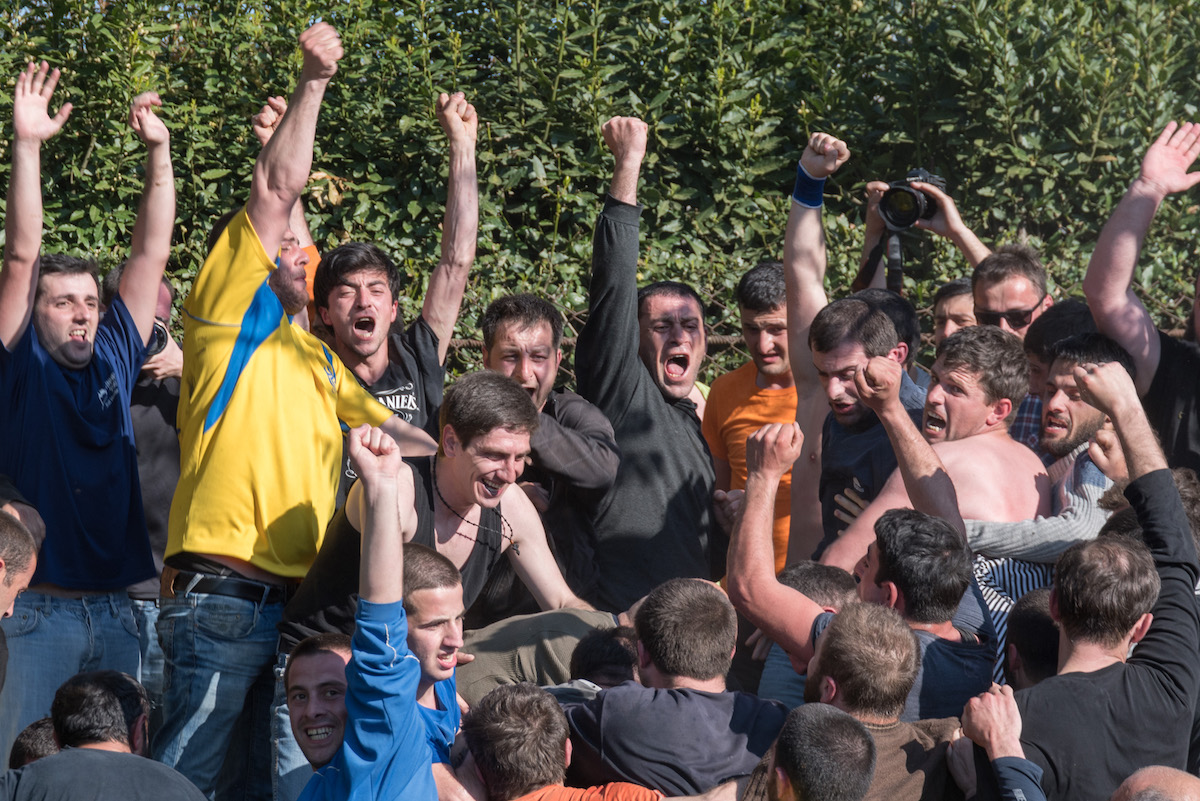
Easter is of particular importance to the residents of Shukhuti village in the Lanchkhuti district. On this particular day, the entire country focuses its attention on this ordinary little village in the Guria region. The residents of Zemo (Upper) and Kvemo (Lower) Shukhuti village come together and play an old Georgian game called ‘lelo burti’ (literally ‘field ball’), with people from across Georgia gathering for this event. The locals relish the opportunity and try to show their worth as much as possible. Before the Lelo burti match, there are wrestling and weightlifting competitions, as well as some cultural events, performances, exhibitions and local products trade fairs.
Lelo burti is regarded by many as a national sport and the Georgian forerunner of modern rugby. As the legend goes, in 1854, an Ottoman Empire army was defeated by a small group of Gurian troops. Since then, each Lelo burti match is viewed as a commemoration and imitation of that battle.
Shukhuti residents are traditionally divided into two groups: the Zemo Shukhuti residents who go face to face with the Kvemo Shukhuti ones.
The lelo burti is made of leather, filled with sawdust and soil, and soaked with Aladasturi. The ball should weigh at least 1 pood (16kg).
Before the match, the ball is blessed in the village church. Then, the village head makes a throw-in from the village center and thus Lelo burti begins. The game field encompasses a 400-meter area from both sides of the center, which has a brook dividing the field down the middle. The winner is the one who hits the ball onto their opponent’s side, which is on the other side of the brook. Neither the match time nor the number of participants are limited. Hundreds of Khukhuti residents are often engaged in the game, which makes it almost impossible to see the ball during the match. The Shukhuti section of the central highway is usually closed for an indefinite amount of time, until the Lelo burti match is over. Patrol police, rescuers and ambulances are mobilized from there.
Lelo burti has only one rule – if someone falls down or feels sick, the players raise their hands and the attack stops for a moment, until an injured person is taken away from the scrum. As for the rest, any maneuver and forms of pushing are allowed here. This, in turn, often results in traumas and occasionally fatal cases. The latest tragic event was reported in 2015, when a middle-aged man died during the game (though the match continued).
In 2017, the Lelo Burti match was unprecedentedly brief, just 20 minutes, and it ended with no casualties. Zemo Shukhuti residents gained possession of the ball which had suddenly bounced from the scrum and rolled a considerable distance, resulting in a win. This ultimately decided the fate of the game. This time the Zemo Shukhuti residents won. According to tradition, the winning team has to bring the Lelo burti to the grave of the most recently deceased person. The ball will be left there, on the grave, forever. You will find many graves with Lelo balls left on the graves in Shukhuti.
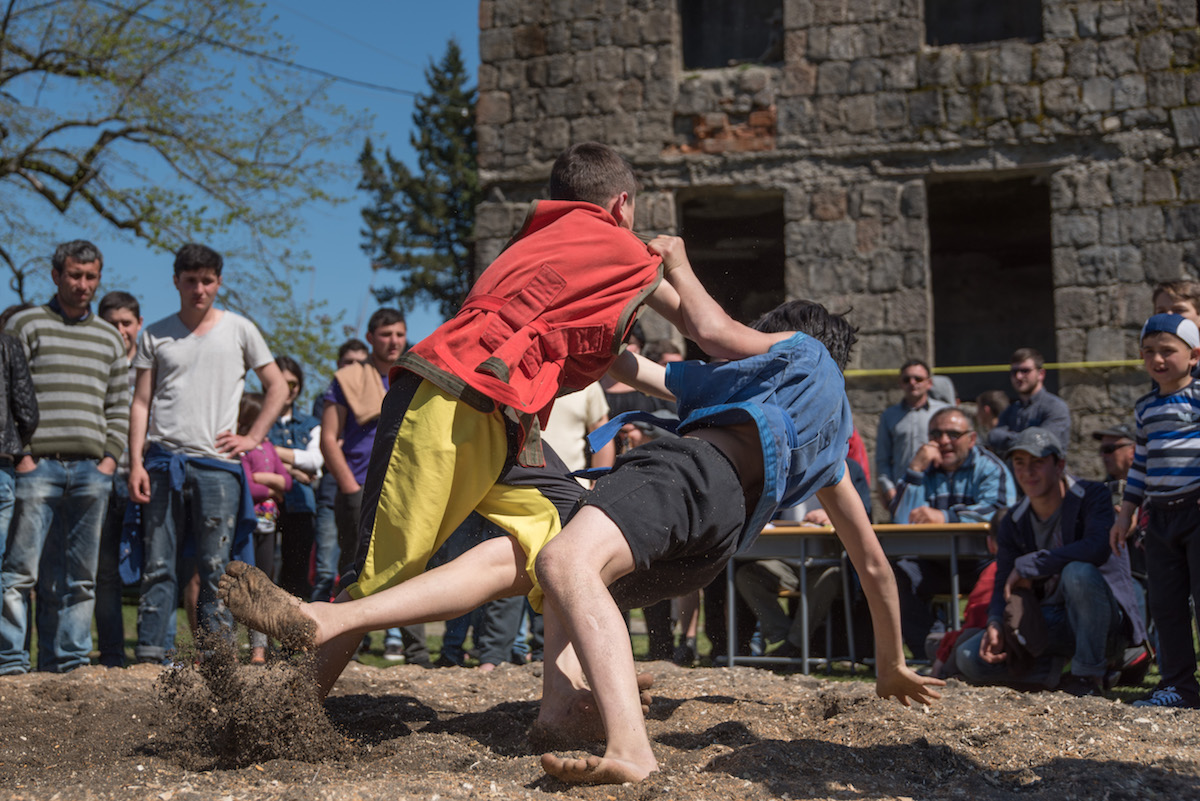
Wrestling competition before Lelo burti match
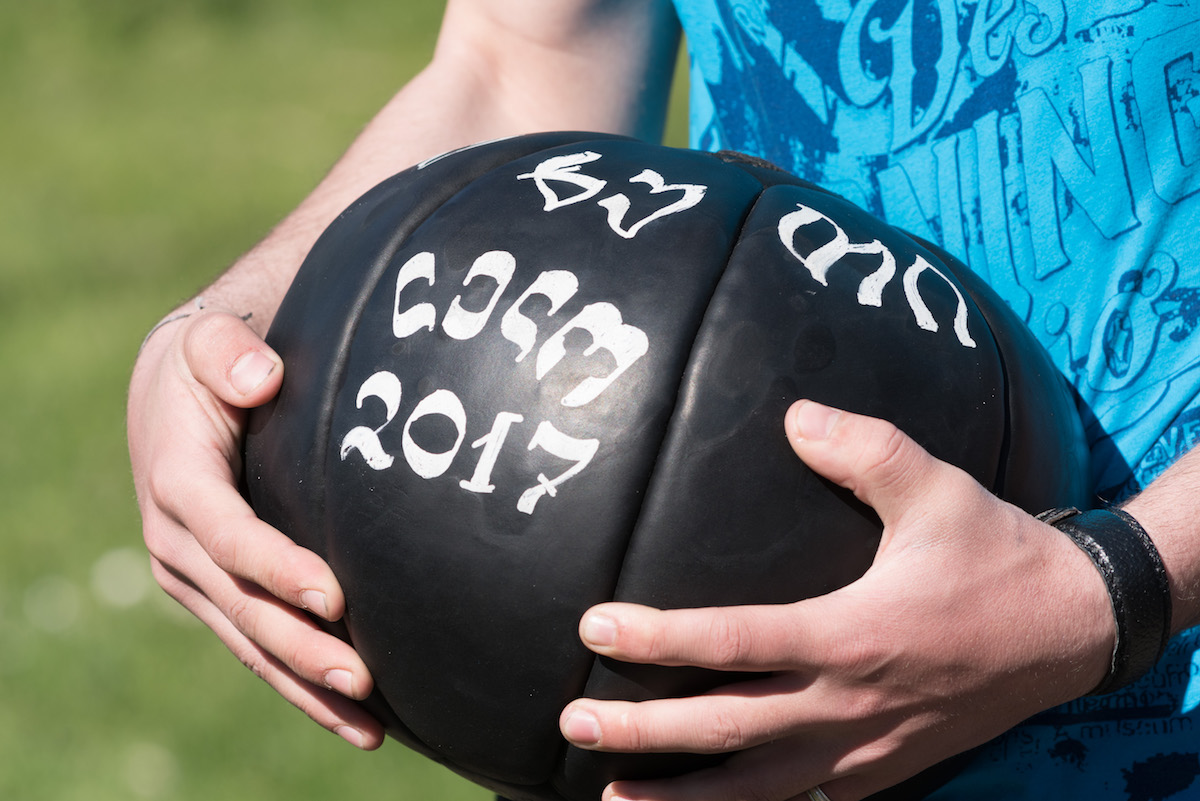
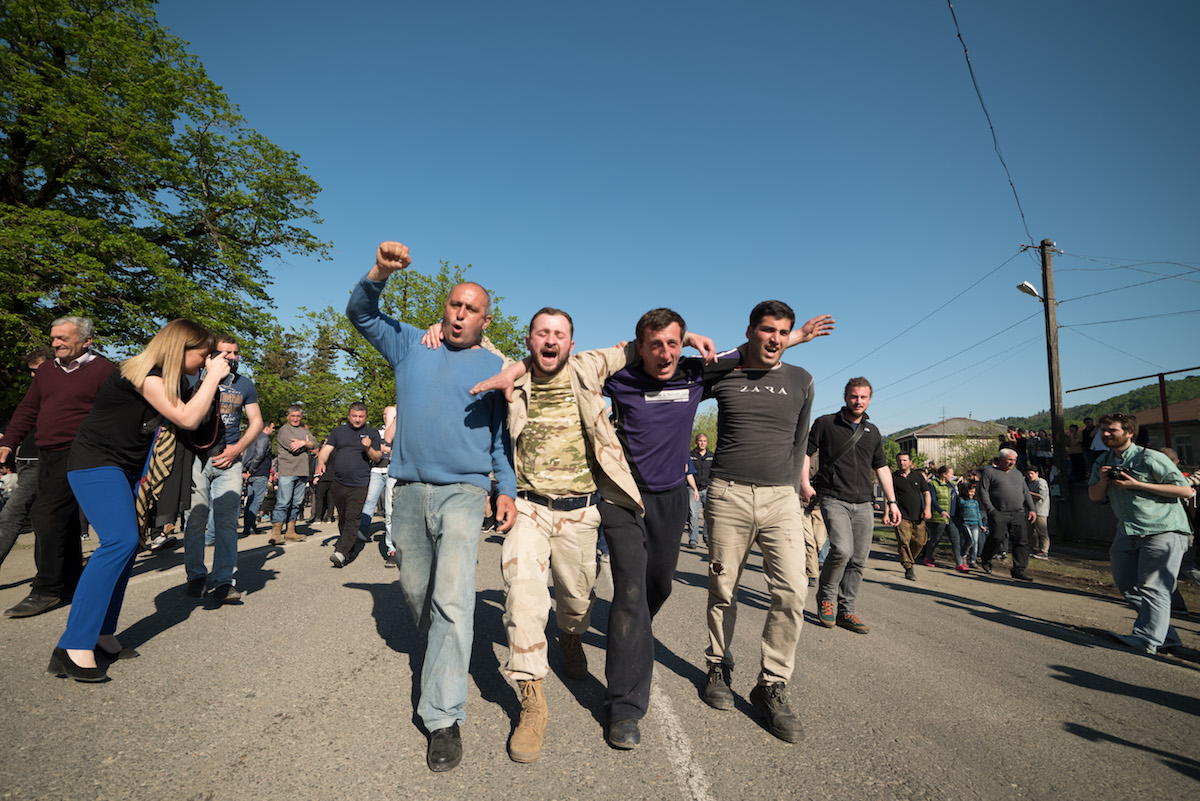
The teams approach each other with a rallying cry
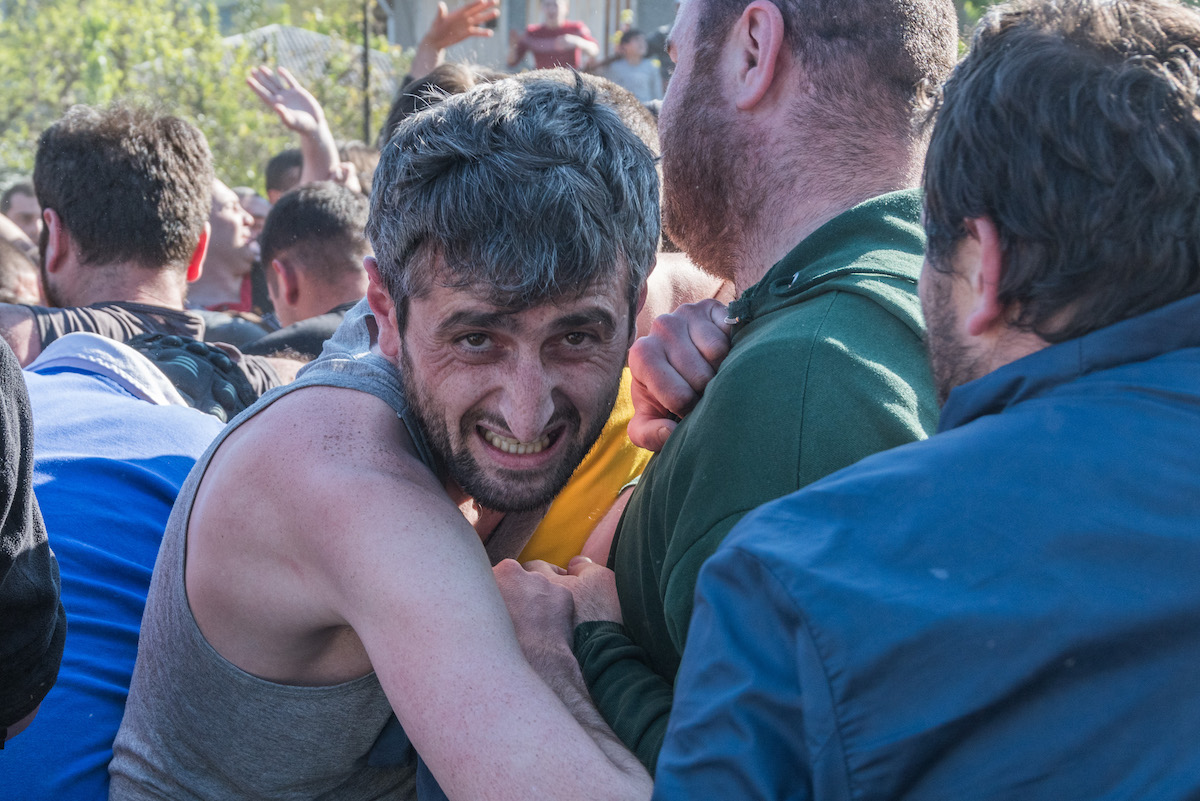
This man has got in a scrum and is trying to free himself
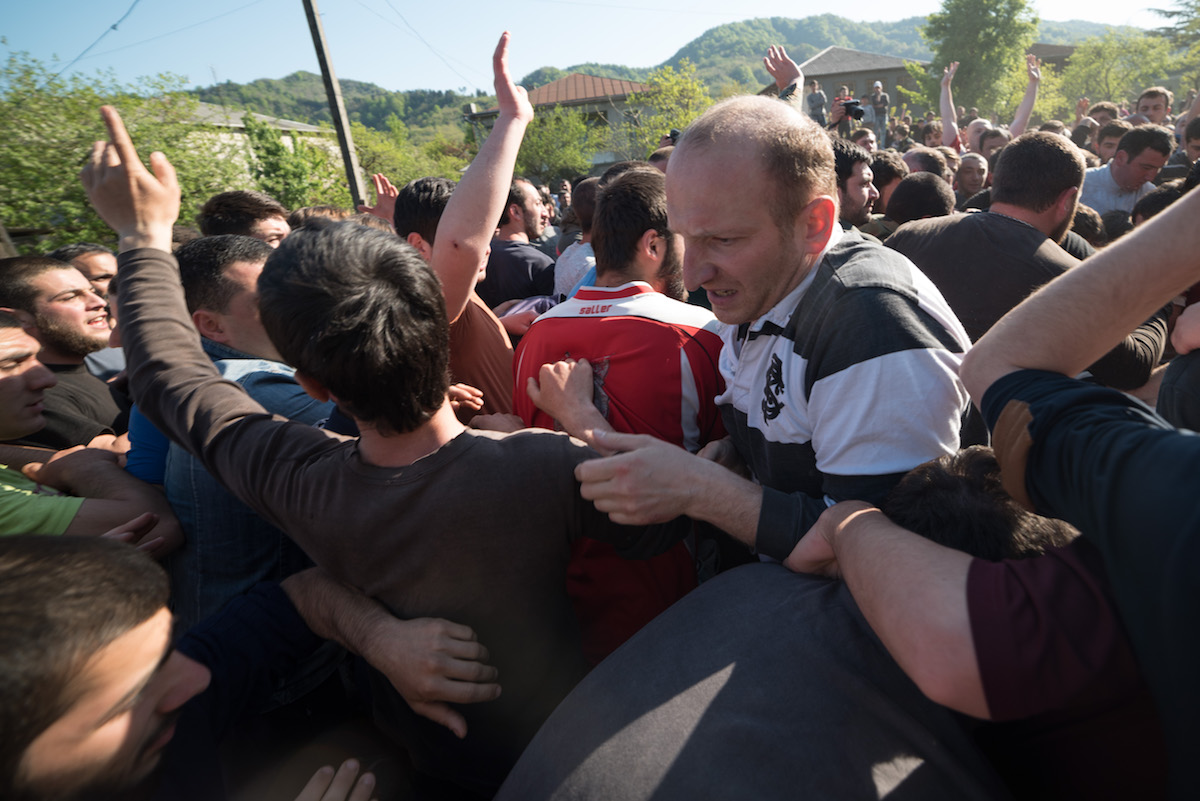
Lelo burti is not a harmless game. A man died in a scrum three years ago.
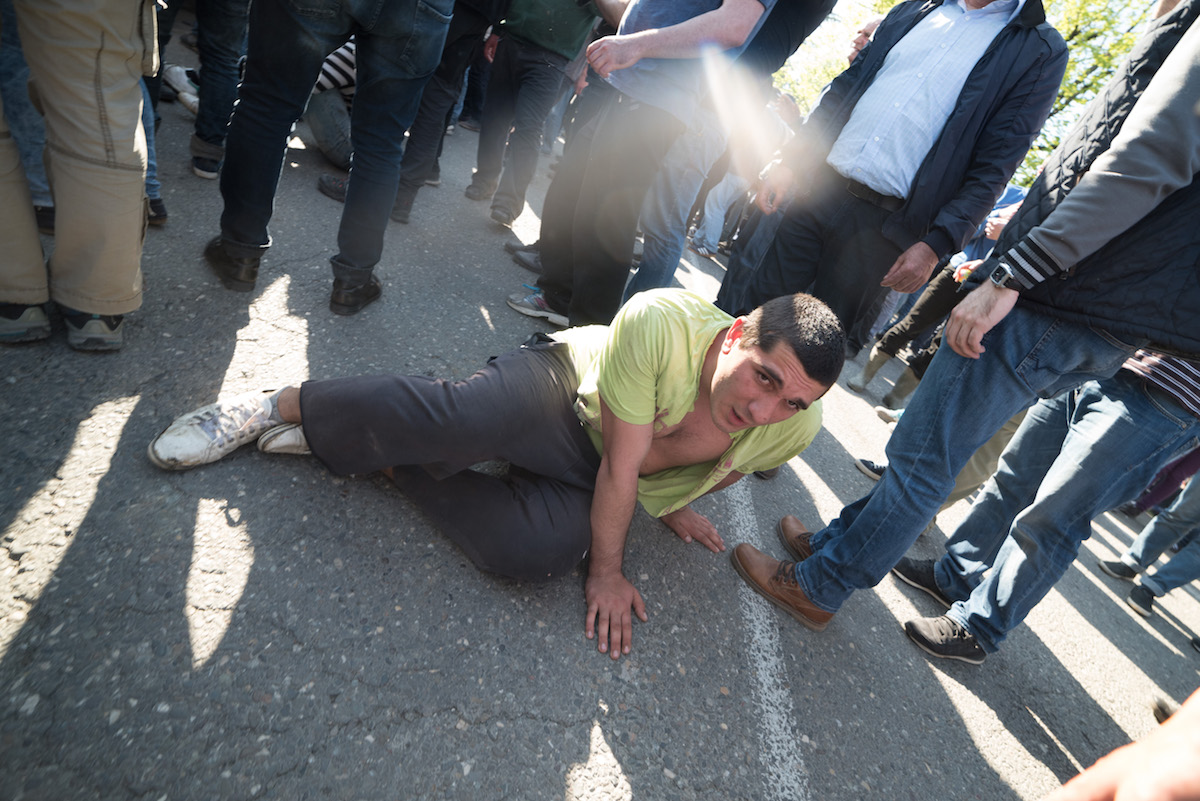
According to Lelo burti rules, a man who is down isn’t kicked
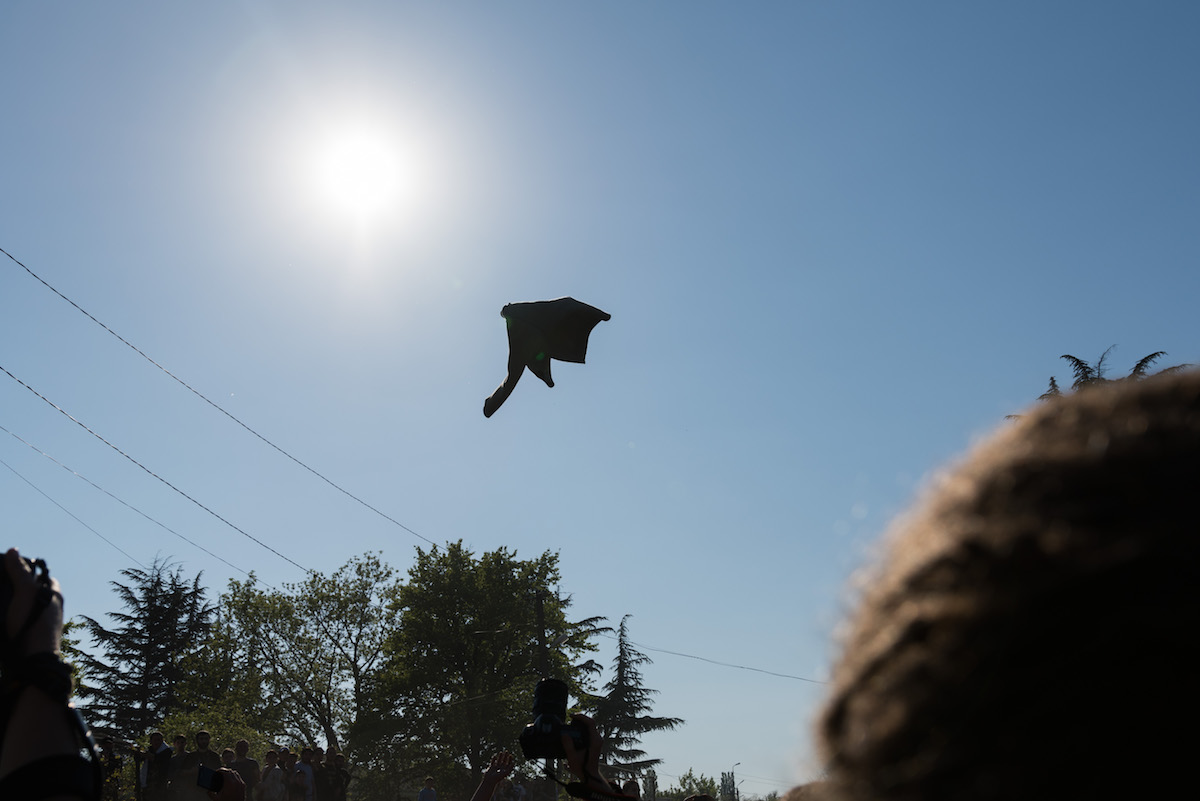
T-shirt flying over Lelo burti
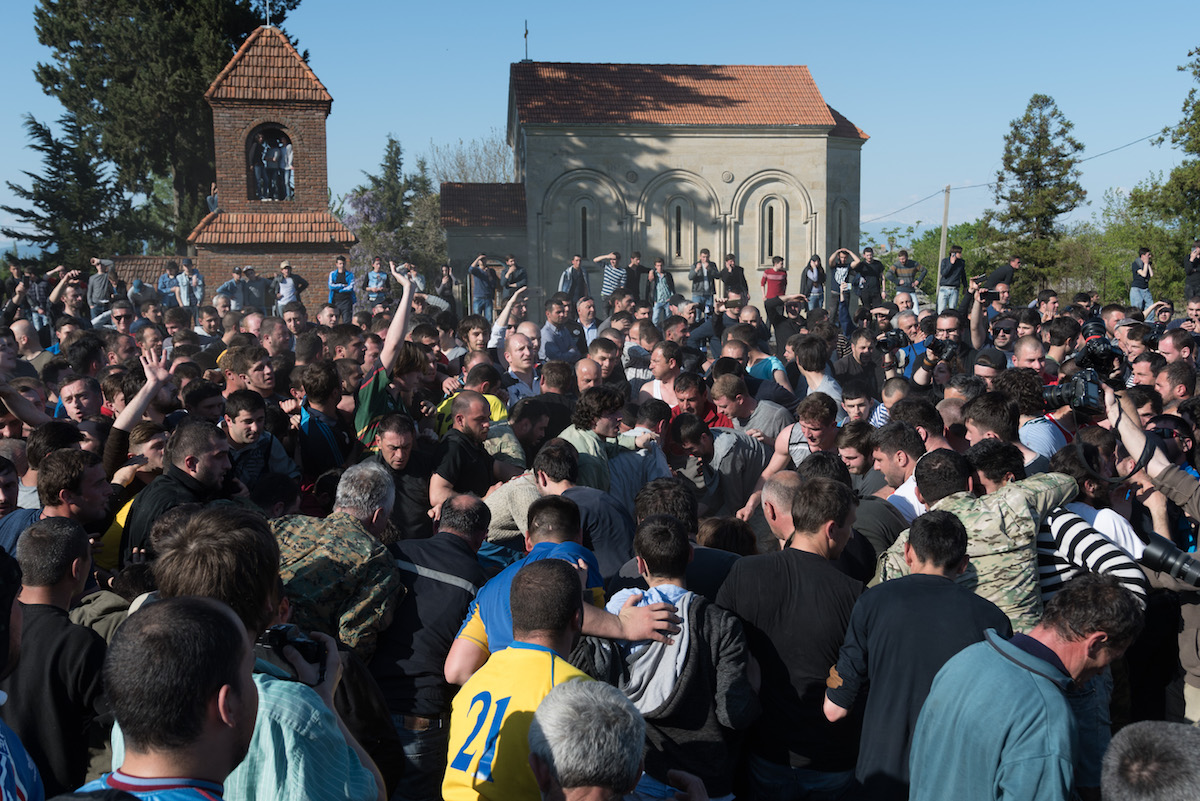
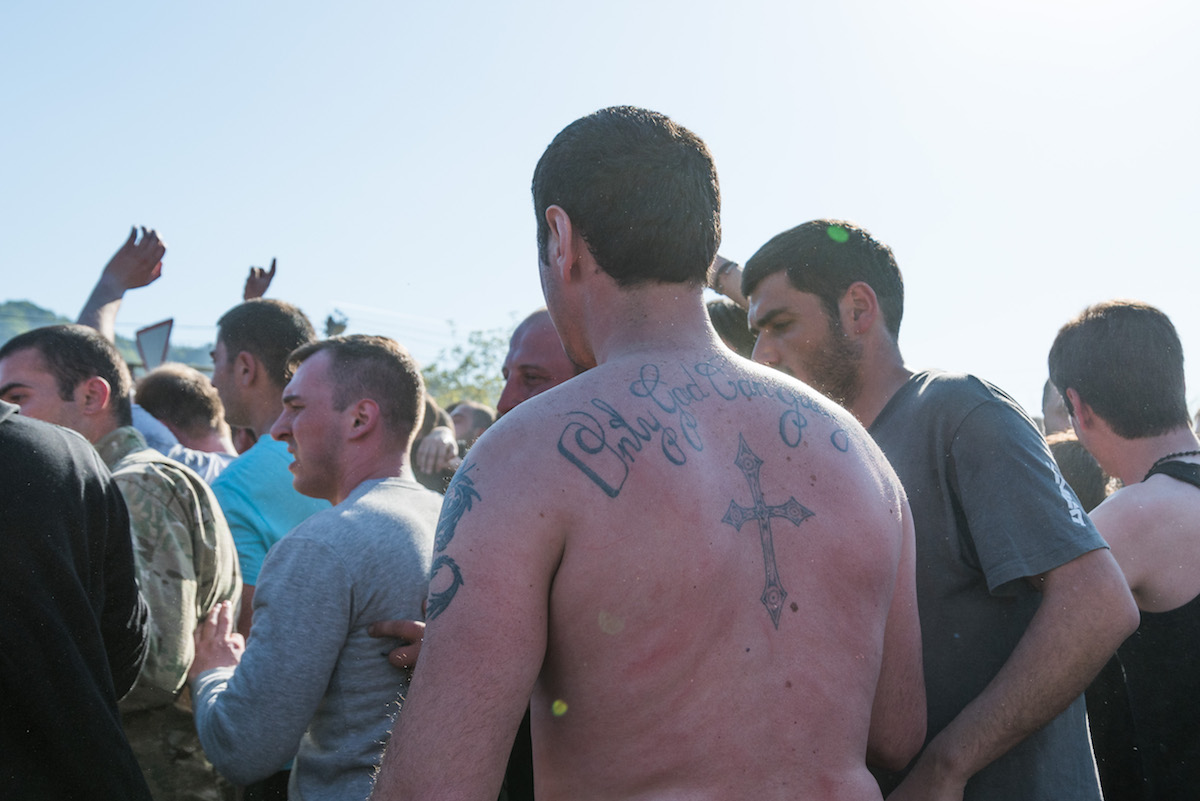
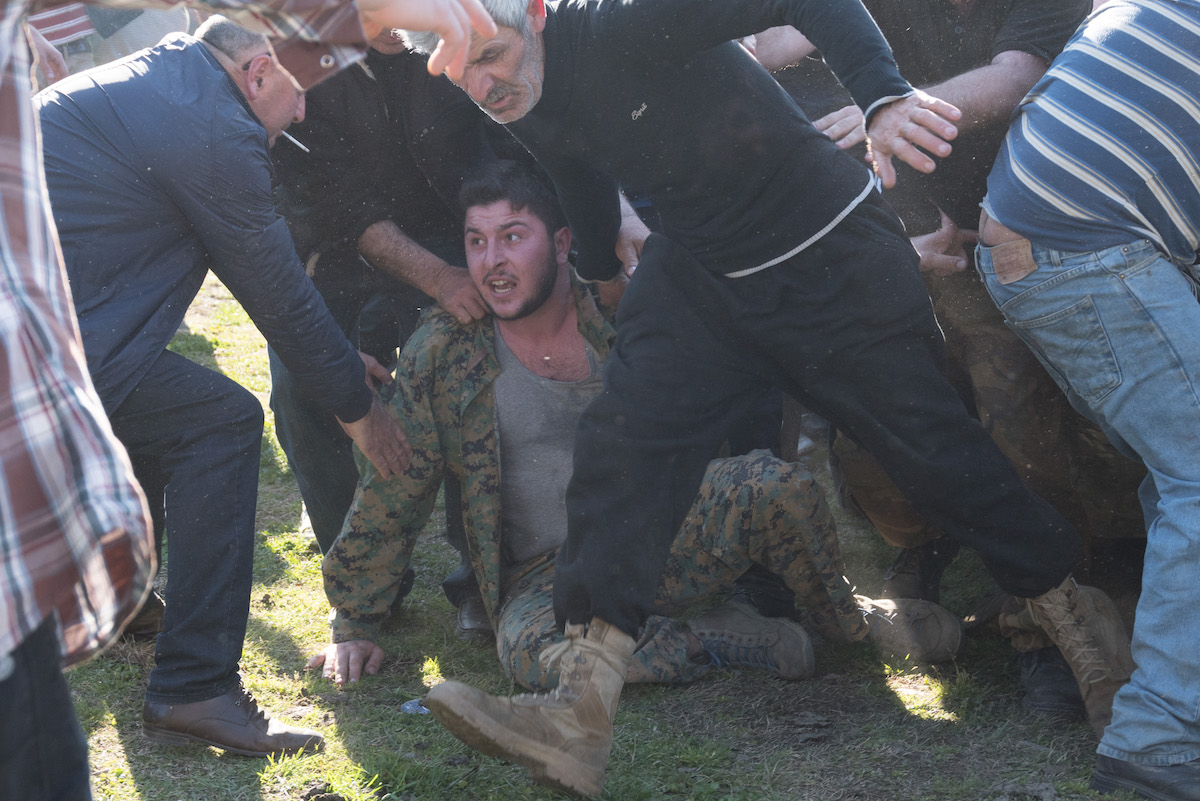
Patrol police and ambulance are mobilized in Shukhuti when Lelo burti is played in the village
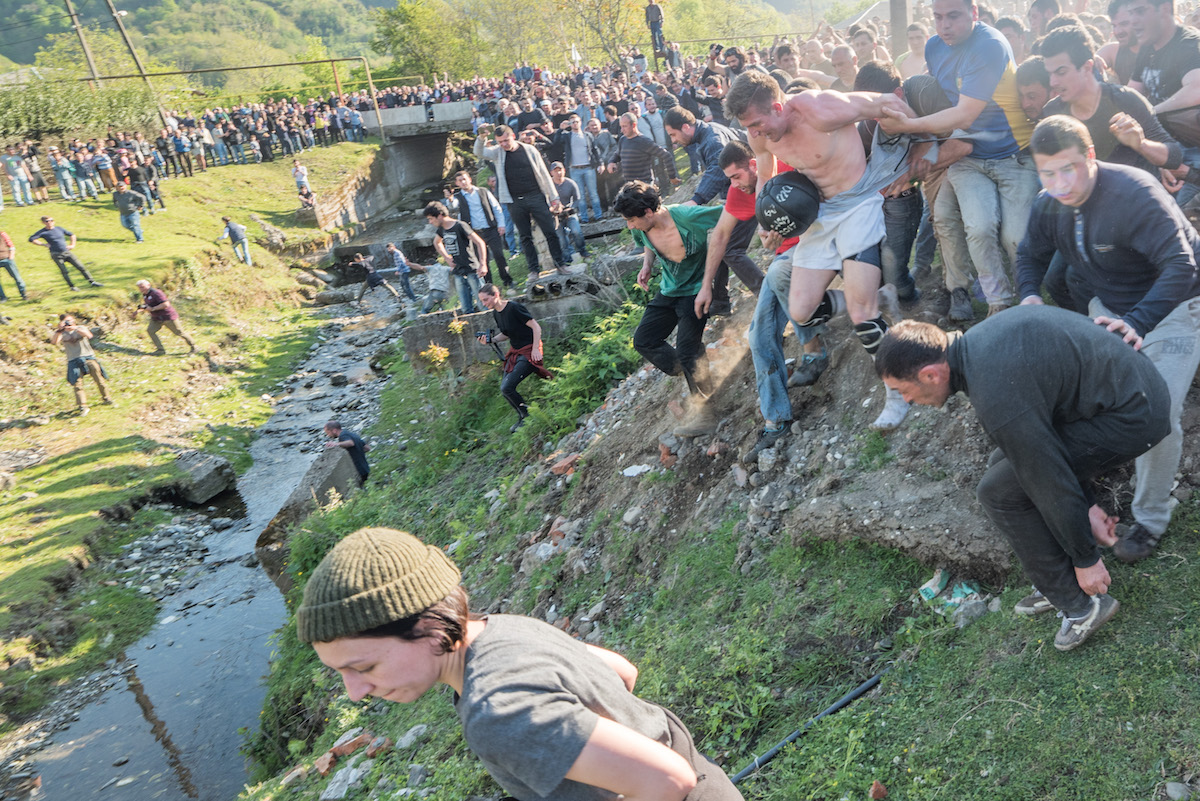
A team that carries the ball to the other side of the brook is regarded as a winner. Just a few steps left to victory

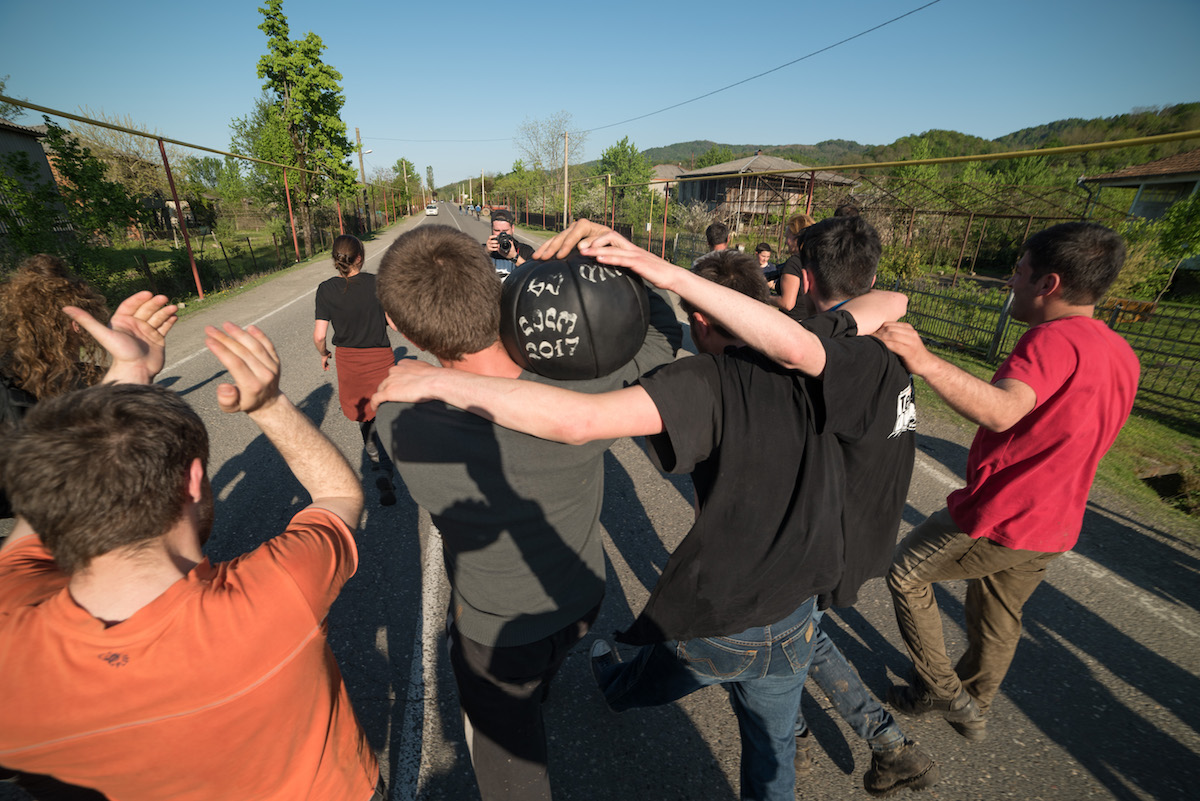
A 16-kg. Lelo ball

The winner Zemo Shukhuti residents take the ball to a fellow villager’s grave
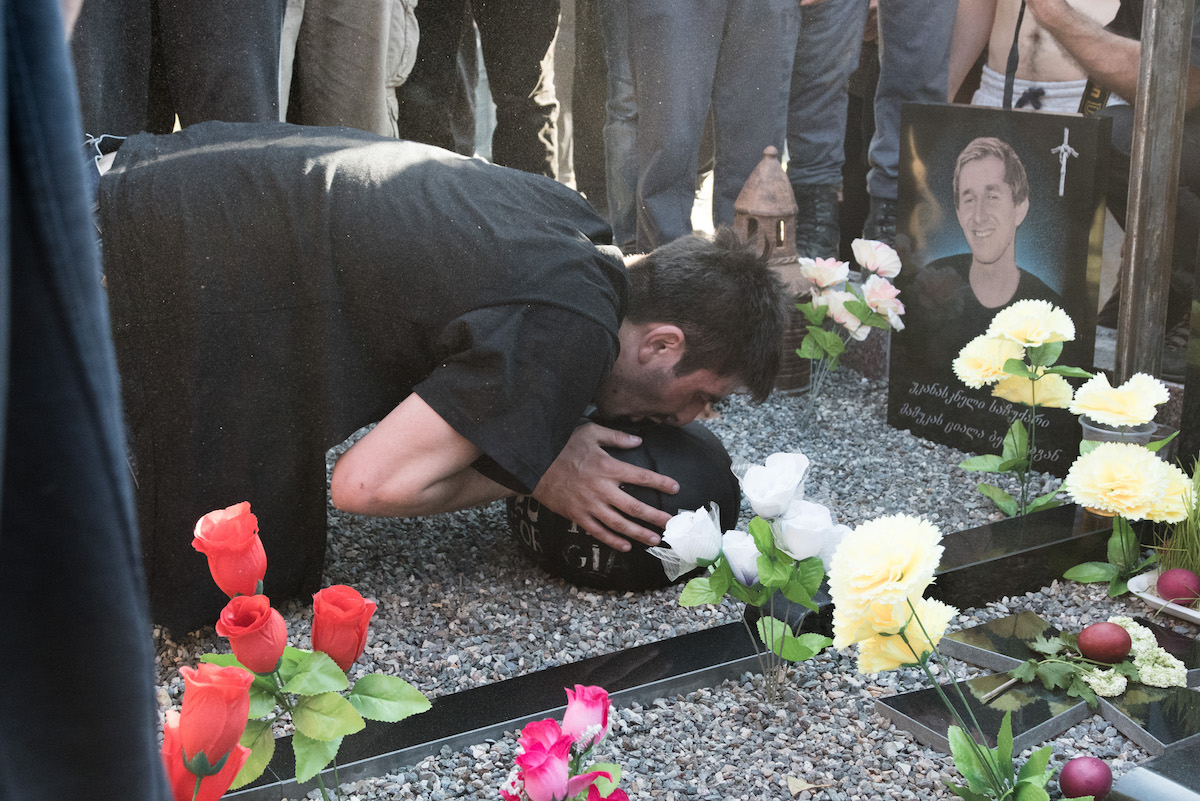
According to the tradition, the winner team brings Lelo ball to the grave of a person who passed away that year. The ball will remain on the grave forever. The graves with Lelo balls can be often found in Shukhuti village. ‘Lelo ball 2017’ will remain on Mamuka Mshvidobadze's grave forever
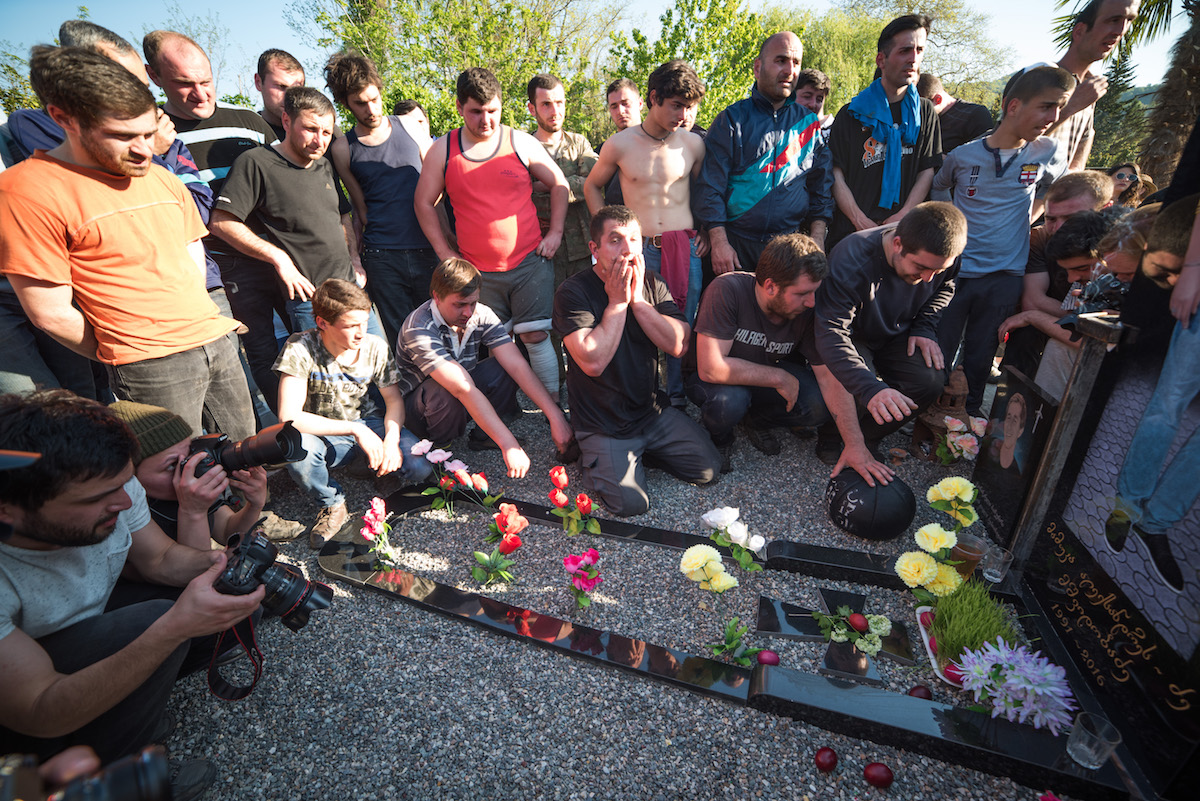
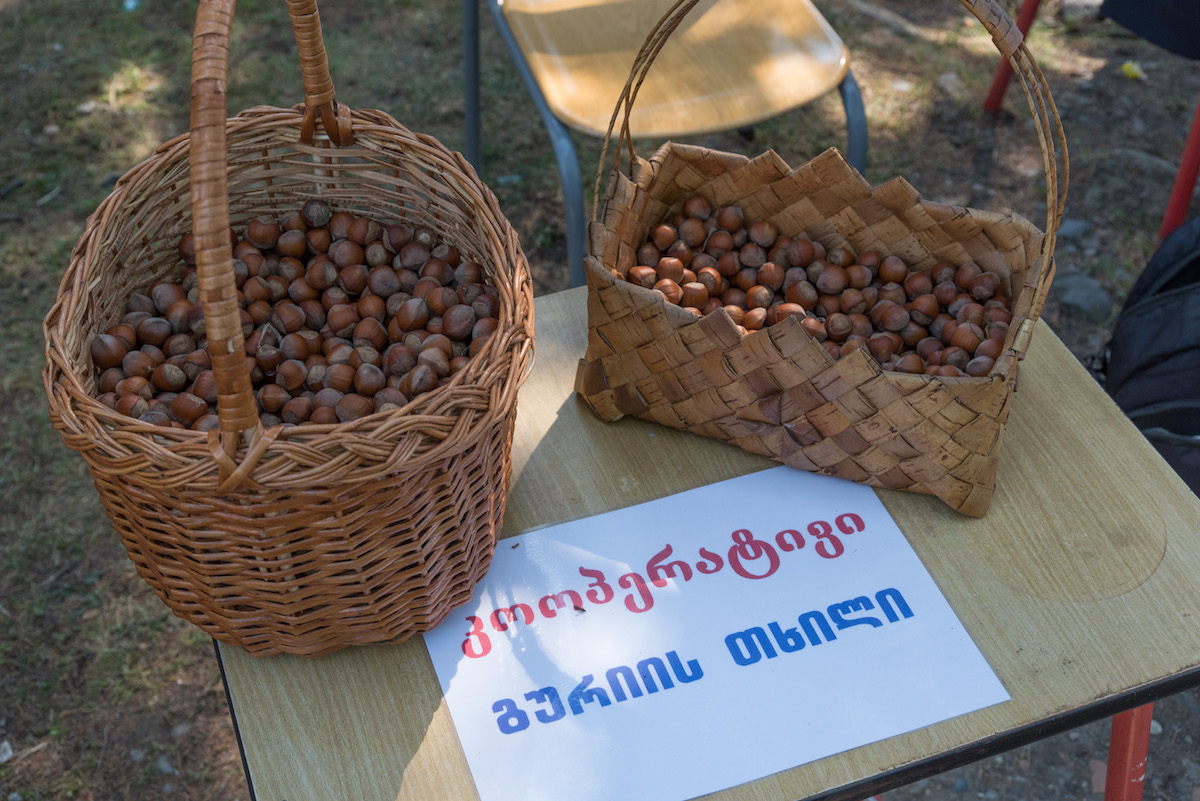
A trade fair of the local products is also organized in Shukhuti on ‘Lelo burti’ day
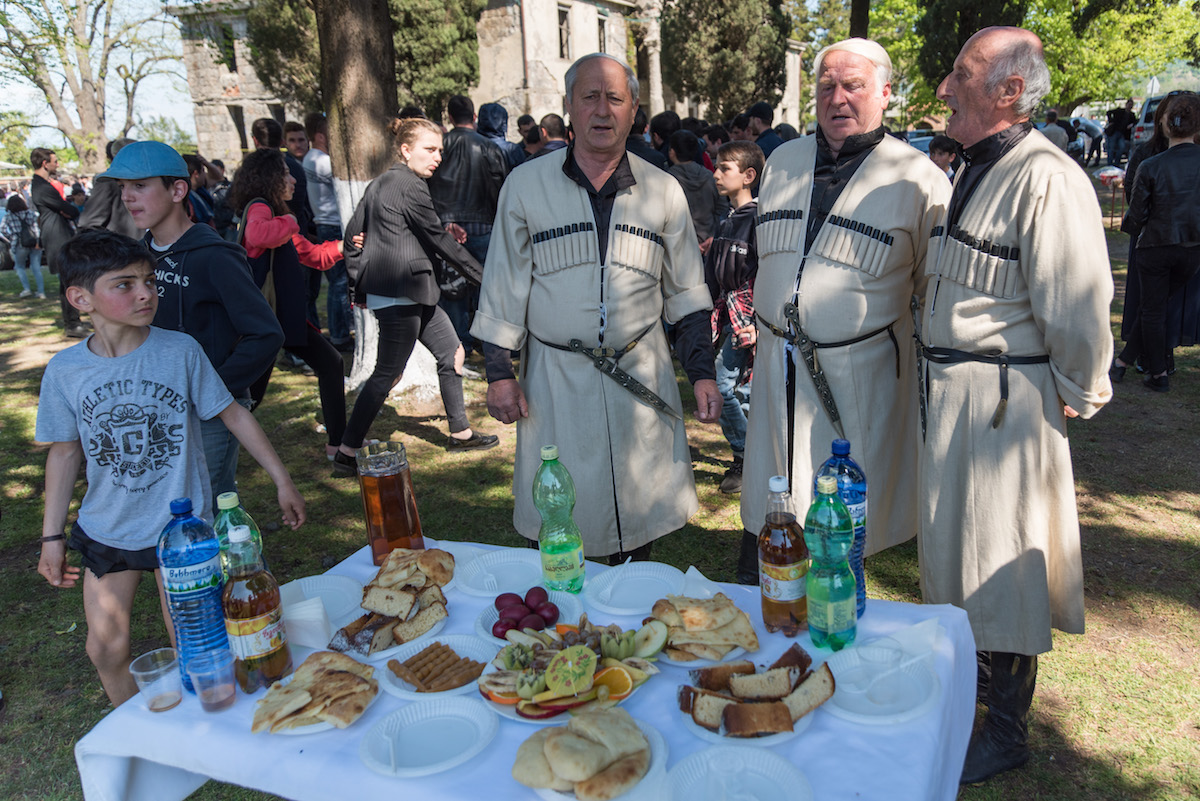
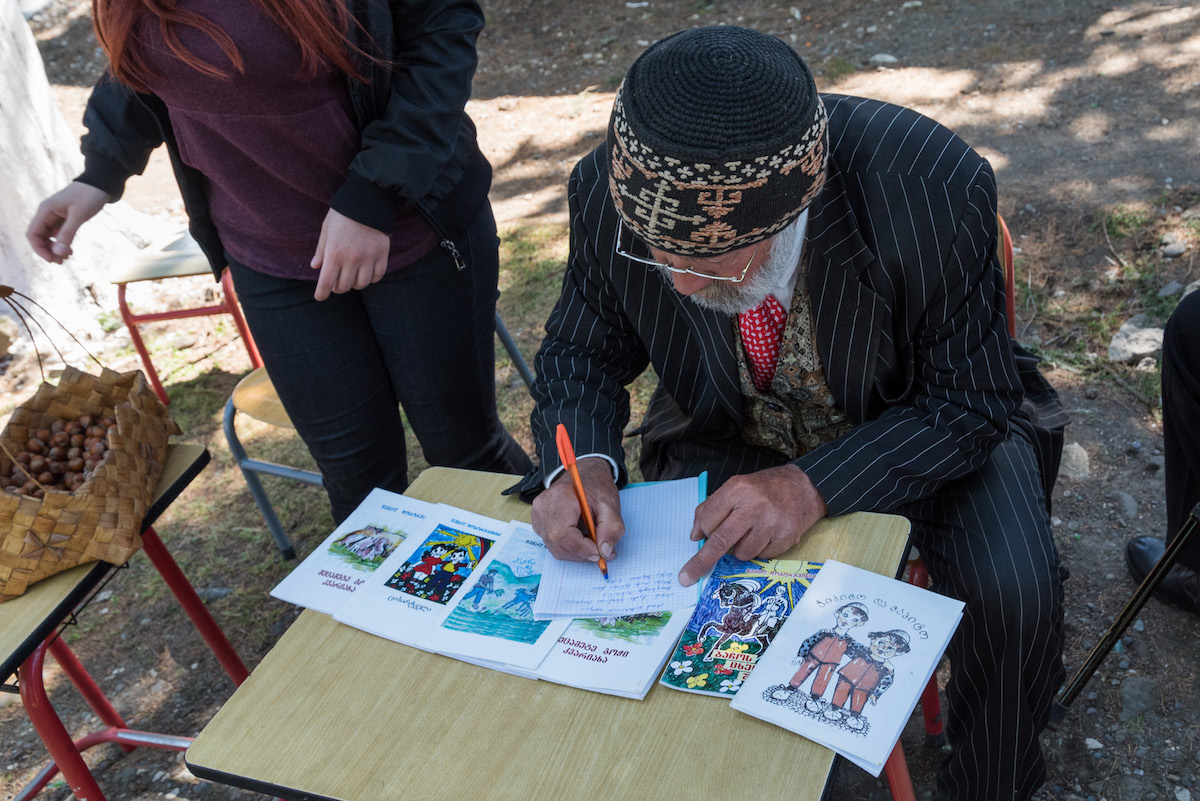
as well as for the local writers, to show themselves. Jemal Doborjginidze is a native of Mamati village. He is an author of children’s literature. This photo features him writing a new poem


















